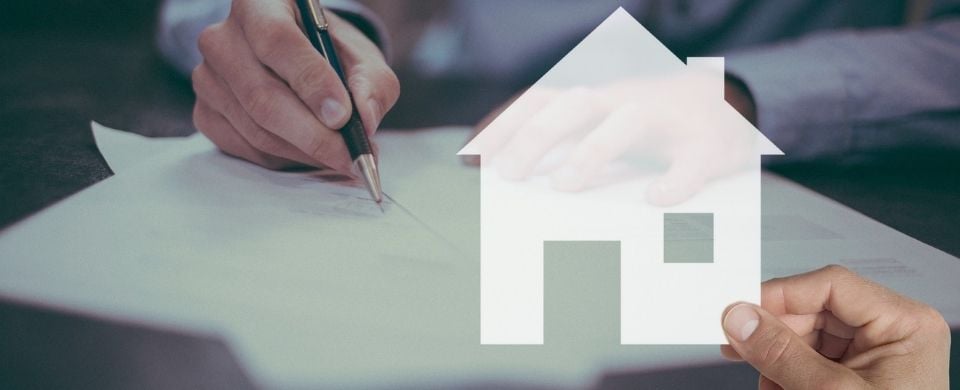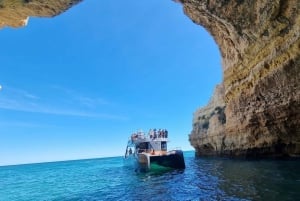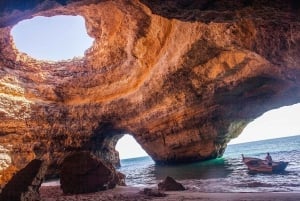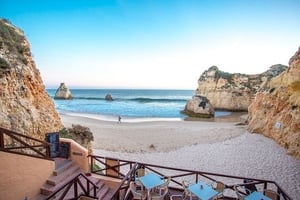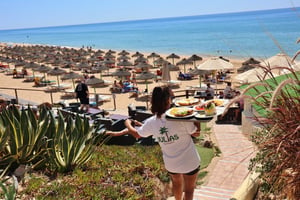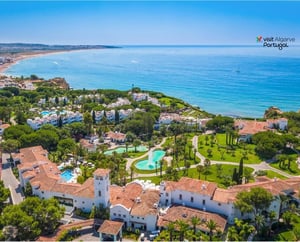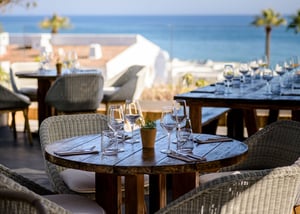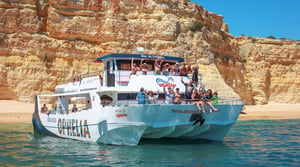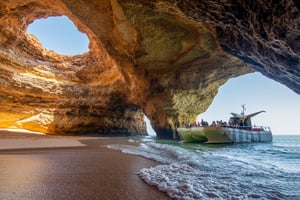FAQs: Buying Real Estate in Portugal
Expert advice by Sunpoint Properties
Book Top Experiences and Tours in Algarve:
If youʻre booking your trip to Algarve last minute, we have you covered. Below are some of the top tours and experiences!- Algarve: Tandem Skydiving from 10.000ft to 15.000ft
- Algarve: Krazy World Interactive Park Entry Ticket
- Faro: Ria Formosa Natural Park Segway Tour & Birdwatching
- Loulé: Quinta da Tôr Winery Guided Tour and Wine Tasting
- Albufeira: Coastline and Benagil Caves Tour by Catamaran
The decision to buy property is generally a significant one for most people. This is particularly true if purchasing property abroad. While it is easy to get caught up in the excitement, with a life lived in the sun beckoning you to the sea-shore, it is always wise to do some research, to listen to experts and to ensure due diligence has been carried out before signing the dotted line. There are questions that need to be answered - is the property licensed? Is there more than one owner? Are there any debts or mortgages associated?
Property in Portugal, and especially in the Algarve, is considered a very good investment, whether you plan to use the property as a full-time residence, a holiday home or a rental investment. To ensure a smooth transaction and to avoid unpleasant surprises, it is wise to enlist the professional help of licensed estate agents to make sure the paperwork associated with the property is in order. Sunpoint Properties, who are experts in the West Algarve property market, with over 25 years experience, are committed to transparent, honest and smooth transactions where all parties are satisfied with the outcome.
In the article below, Sunpoint Properties explains the different paperwork involved in buying property in Portugal, explains the different documents required and answers questions about buying property in the Algarve.
Purchase Process Information
This article was originally published by Sunpoint Properties
INVEST IN A HOME
Depending on what you are looking for, there are many options from the North to South of Portugal in terms of apartments, villas or land, either new or in need of renovation.
The average prices of property in Portugal depend, obviously, not just on the location but also on the typology, dimensions and state of conservation. In the Algarve, which has seen demand increase significantly the last few years, the prices are relatively higher than the rest of the country, as such the average prices vary between €90,000 and €1,000,000.
PROCEDURES TO TAKE IN PREPARATION FOR BUYING A HOUSE
After an intensive search and finally finding the house of your dreams, the subsequent acquisition will require a few essential details from you, mainly on a fiscal level.
While there are many platforms online to help find and facilitate the work of choosing an ideal property, the reality is that a personal visit is essential. Planning a visit to the property in person will help to determine that it is indeed what you are looking for.
After this, making contact with a registered estate agent should be your next step. They will be able to help you within a professional context and take you through the process of selection, negotiation, reservation and purchase of the property. Along with this, many investors and buyers opt to use the help of a lawyer specialized in real estate.
It is important to be aware of certain legalities prior to signing any contract, namely, to understand that the property has been constructed with a license, that it has an urban license, that it meets relevant standards of infrastructure, as well as whether there are any debts, mortgages or any legal actions in the name of the owner, whether there is more than one owner, or any tenant with the first right of purchase. With this in mind, the time taken to confirm these points is necessary to guarantee there will not be future problems.
The purchase of any house, apartment or other property is subject to payment of taxes, in principal the IMT, for which one must register with the fiscal office in order to obtain a fiscal identity number or Numero de Identificação Fiscal (NIF).
It is also important to know that, in the case of either a foreign resident or Portuguese resident who will be out of the country for longer that 6 months, they should find a legal representative resident in Portugal to take responsibility of any tax obligations. However, residents of an EU member state or from the European economic market are not required to have a representative, only as a facilitative measure. It should be noted that the address given for the fiscal number should be that of the habitual residence or in the case of nationals living abroad, should be the address of the fiscal representative.
In case financial assistance is needed we would suggest opening a Portuguese bank account, who will assess and approve the application for mortgage or loan.
NECESSARY DOCUMENTS
After following the previous steps, it is essential to present certain documents during the buying process. These documents on the one hand, identify the property and on the other, confirm the legitimacy of the buyer and owner.
In the first place there must be the registration of the property, either called the Certidão do Registo Predial or Certidão de Teor. With this you will know what the property comprises of and if applicable, the legitimacy of who is selling it and whether it possesses any debts or mortgages. This certificate can be obtained at the Conservatório do Registo Predial or land registry office which has details for all properties within the country, or it can be found online at the website Predial Online, through which you can request the Certidão and find a summary of the building information.
At the same time, this must be accompanied by the Caderneta Predial, which can be requested at any office of Finanças. This document represents the tax determination of the property and identifies who is responsible for the fiscal obligations related thereto. This document must be presented by the owner of the property. In substitution of this, a Certidão de Teor do artigo matricial can also be presented, which holds validity for one year.
In addition, there is the habitation license called a Licença de Utilização or Habitação. This document will confirm that the property is destined for habitation and meets certain standards. This license can be requested from the local council or Câmara Municipal in the county where the property is located. For the purpose of buying and selling it is possible to submit proof of the request for the license, in case it has not yet been issued.
Last but not least, there is the Ficha Técnica de Habitação, a document that describes the technical characteristics and functions of the property, which can also be requested at the local Câmara Municipal or via the construction company as well as the Certificado Energético or Energy certificate supplied by the owner of the property.
Following this it should be determined what state of conservation the property is in, especially if it is not newly built, to understand in collaboration with an architect or engineer, the costs involved to make a renovation.
CONTRACT OF PURCHASE AND SALE AND SIGNING THE DEED
After understanding all of the extra expenses involved, you must sign a Promissory Contract (Contrato Promessa de Compra e Venda) between yourself and the property owner; obtain a license from the local council in order to make any necessary renovations; sign a Deed (Escritura Publica de Compra e Venda); and carry out the renovations, which, in the majority of cases, can only take place after signing the deed.
In order to facilitate the process, it is important to request the contracts for all indispensable services related to the property such as gas, electricity, water, telecommunications as well as any services such as gardening and if applicable, security among others.
OTHER EXPENSES
In terms of the costs associated with buying a home in Portugal, be aware, as previously mentioned, of the IMT (Imposto Municipal sobre Transmissões), tax paid on the transaction of real estate in Portugal. The amount of tax paid depends on the nature and value of the property and must be paid after signing the deed by the buyer.
Added to this is the stamp duty (Imposto de Selo), corresponding to 0.8% of the purchase price as well as the fees of your lawyer, if you should have one, which vary between 1% and 1.5% plus tax, of the purchase price.
There are also the taxes for the Notary and Registration of the property paid after the deed, which are approximately €750.00
Finally, there are the Estate agents fees, which are to be paid by the seller.
Annually, all property owners must pay an obligatory tax called IMI (Imposto Municipal sobre Imôveis). This varies according to the municipality in which your property is situated and also in relation to the property characteristics.
In order to reside legally in Portugal, foreigners must register at the National Immigration centre called SEF (Serviçoo de Estrangeiro e Fronteiras) as well as at the local parish and council offices including the Junta de Freguesia, Câmara Municipal, Autoridade Tributaria e Aduaneira and the Serviços da Seguranança Social for your social security.
FAQs
I am a foreign citizen, can I buy a property in Portugal?
Yes.
What must I do before buying a property?
- Research properties online, for example:
- Select the properties that interest you;
- Contact an estate agent;
- Arrange to visit the property in person;
- If necessary, contact a lawyer specialized in real estate;
- Confirm that the property is legal, that it has an urban license, that it has all necessary infrastructures, that there are no judiciary actions against the owner, that there are no tenants with priority to buy the property, that..in the case of an apartment, the building is licensed with all apartments marked as autonomous fractions.
What documents do I need prior to signing the deed?
- Certidão do Registo Predial/Teor (Registration of the property)
- Caderneta Predial (Tax related registration)
- Licença de Utilização/Habitação (habitation license)
- Ficha Técnica de Habitação (Technical certificate)
- Certificado Energético (Energy certificate)
- Contrato de Compra e Venda (a Deed contract) to be agreed upon and signed by yourself and the property owner.
Yes. Usually, the buyer will already have paid a deposit for the promissory contract. The deed contract will indicate the date upon which the remainder of the agreed price is to be paid to the seller.
Can I cancel a deed?
Yes
If I do not complete the deed can I recover the deposit paid to the seller?
It depends. You must review the conditions relating to the purchase stated in the deed, and in cases where the seller has not been compliant with the terms and conditions, you are able to have the deposit reimbursed. On the other hand, should the seller not complete the deed, they are obligated to return the deposit in double. In these cases it often calls for common sense by both parties.
What are the costs before and after signing the deed?
- IMI purchase tax (paid by the buyer after the deed, of which the cost varies);
- Stamp Duty (paid by the buyer on signing the deed, of which the cost varies up to 0.8% of the cost of the property);
- Lawyer fees (paid by the buyer, of which the cost varies);
- Notary and Registration taxes (paid by the buyer after the deed, of which the average value is €750.00);
- Estate agent fees (paid by the seller, of which the value varies);
- Property price (paid by the buyer on signing the deed, value minus any deposit already made).
In order to buy a property, do I need to have a Portuguese Fiscal identity number (NIF)?
Yes.
After buying my dream property, do I have other annual costs?
Yes. Every year it is obligatory to pay the Imposto Municipal sobre Imóveis (IMI) or property tax, which varies according to the characteristics of the property
For more information and to see the extensive range of properties available visit Sunpoint Properties
You may also like:
- Property in Portugal - information resource
- Best places to live in the Algarve
- Tips on buying and selling property in the Algarve
- Relocating to Portugal
- Tax in Portugal - information resource


